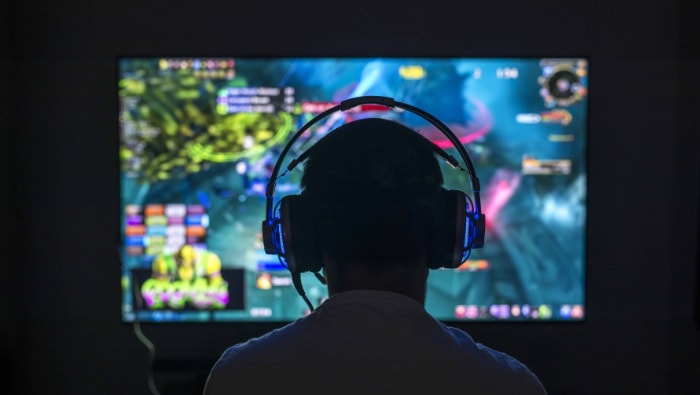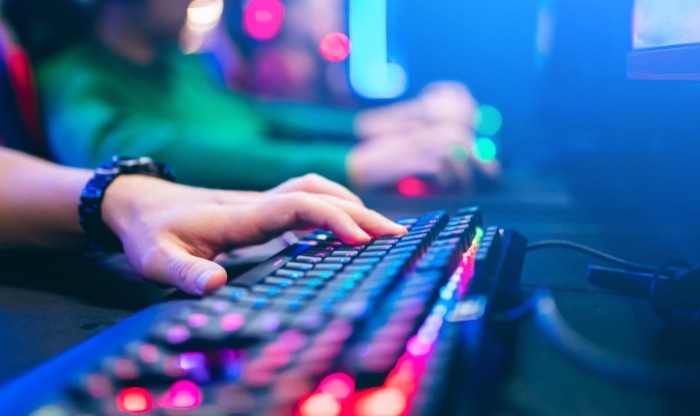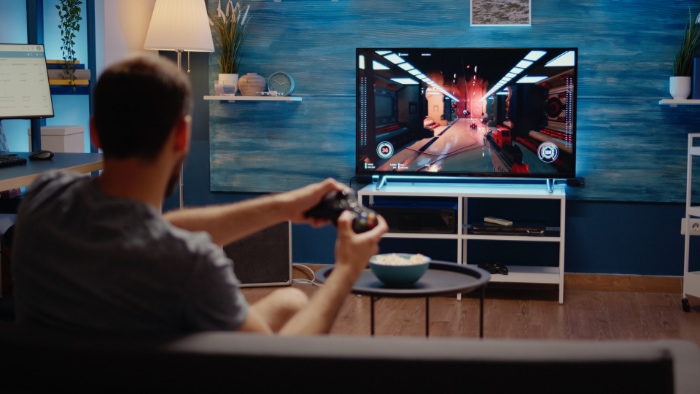Why Am I So Bad at Video Games? What You're Missing

Mastering video games can be an elusive goal, much like perfecting any other skill set. While many players effortlessly climb the ranks, others find it challenging to keep pace.
If you're among those puzzled by your inability to excel in this digital realm, rest assured that the reasons for your struggles are likely multifaceted and nuanced. Contrary to popular belief, falling short in video games is not a mere reflection of inadequate effort or low motivation.
Various factors—both internal and external—can influence your gameplay performance.
Cognitive Factors Influencing Video Game Performance
Cognitive abilities are crucial components that can significantly affect your performance in video games. From quick decision-making to accurate memory recall, these mental skills play a vital role in how well you can adapt and react within a virtual environment.
Reaction Time and Speed of Processing
One of the key cognitive elements affecting your gaming skills is reaction time, or the speed at which you can process and respond to stimuli. Games that require fast reflexes and quick decision-making, such as first-person shooters or racing games, are particularly sensitive to this metric.
A fraction of a second can make the difference between victory and defeat. Studies have shown that reaction time can be improved with practice but is also subject to genetic factors.
Decision-Making Skills
Another important aspect is your ability to make quick, effective decisions. Games like strategy and role-playing games require complex problem-solving and the ability to make choices that influence game outcomes.
Some people naturally excel in these areas due to their cognitive predispositions, while others may find it more challenging to rapidly process information and make sound judgments.
Memory and Information Recall
Memory is another cognitive function that has a substantial impact on video gaming. Games often require players to remember complex sequences, locations, or game mechanics to progress.
The capacity for accurate and quick information recall can provide a significant advantage, especially in genres that require memorization of maps, codes, or patterns.
Spatial Awareness and Hand-Eye Coordination
Spatial awareness is the understanding of how objects are positioned in space, and it's crucial for gameplay in three-dimensional virtual environments. Coupled with hand-eye coordination, these skills help you navigate through complex terrains and engage in combat more effectively.
Many sports and action games rely heavily on strong spatial reasoning and coordination abilities.
Multi-Tasking and Cognitive Load
The final aspect we'll discuss is the ability to manage multiple tasks simultaneously, often referred to as cognitive load. Video games frequently challenge players to keep track of multiple objectives, resources, and characters concurrently.
Players who can manage this high cognitive load effectively are generally better suited for complex gaming scenarios, such as those found in real-time strategy or massively multiplayer online games.
Experience and Skill Level Impact on Gaming
The role of experience and skill level in video games cannot be overstated. Like any other domain that requires specialized skills, prior experience with similar games can give players a marked advantage.
Moreover, the learning curve associated with different game genres means that some players naturally have a head start.
The Learning Curve and Skill Acquisition
The term ‘learning curve' is often used to describe the gradual process of improving at a game. Beginners may struggle with basic controls and mechanics, while intermediate players may face challenges in mastering strategies.
The more you play, the more your skills tend to improve, especially if you are actively seeking to correct your mistakes and adapt your strategies.
The Role of Muscle Memory
Repetitive gameplay leads to the development of what is commonly known as muscle memory. Your hands and fingers learn the correct movements and timings, making certain actions in the game almost automatic.
Players with more experience can execute complex movements and sequences with less conscious effort, giving them an advantage in competitive settings.
Importance of Game-Specific Skills
Each game has its unique set of rules, mechanics, and strategies, which can vary significantly from one title to another. Players who have invested time in similar games are often better prepared to adapt to new but related challenges.
For example, if you've played a lot of first-person shooters, you're likely to adapt more quickly to a new game in the same genre.
The Significance of Meta-Knowledge
Experienced players not only have better control and gameplay mechanics but also possess what is known as meta-knowledge. This includes knowledge about game-specific strategies, character builds, and efficient ways to use in-game resources.
This type of knowledge can significantly tilt the balance in favor of more experienced players.
Competitive Settings and Skill Rating
Most online games come with some sort of ranking or skill-rating system designed to match players of similar abilities. These systems aim to make gameplay more balanced, but they also highlight the difference in skill levels between players.
Climbing the ranks usually requires a deep understanding of the game, honed through time and experience.
Hardware Constraints and Their Impact on Gaming Performance

Hardware can be an overlooked but crucial element influencing your gaming capabilities. Playing on outdated or suboptimal hardware can drastically affect your performance, and it's an element many people may not initially consider when assessing their skills.
Frame Rates and Smooth Gameplay
One of the most immediate ways hardware affects gameplay is through frame rates. Higher frame rates generally lead to smoother gameplay, allowing for better responsiveness and more accurate actions.
A low frame rate can make the game stutter, potentially causing you to miss critical moments or make incorrect decisions. Modern gaming rigs aim for at least 60 frames per second to ensure a fluid experience.
Input Lag and Responsiveness
Input lag refers to the delay between pressing a button and seeing the corresponding action on screen. While it may seem negligible, even a fraction of a second of lag can affect timing-sensitive tasks such as shooting in first-person games or executing combos in fighting games.
Input lag is influenced by both your controller's quality and the display you're using.
Monitor Refresh Rate and Resolution
The refresh rate of your monitor can also be a limiting factor. A higher refresh rate can lead to smoother motion portrayal, making it easier to spot details in fast-moving scenes.
Additionally, higher resolution can offer better clarity but may demand more processing power. Depending on your hardware, you may have to compromise on these features to maintain optimal performance.
Audio Hardware and Situational Awareness
Quality audio can play a surprisingly significant role in gaming, particularly in titles that require situational awareness. Being able to accurately hear where an opponent is coming from can give you a strategic advantage.
Lower-quality audio setups may not provide the necessary detail, leading to a compromised experience.
Internet Connection and Latency
Lastly, the quality of your internet connection can have a substantial impact, especially in multiplayer settings. High latency or “ping” can lead to delays in action execution or even disconnection issues.
A stable and fast internet connection is almost essential for competitive online play.
Psychological Factors Affecting Gaming Performance
Psychology plays a surprisingly significant role in how well you perform in video games. Your mental state, attitude, and even emotional condition can all contribute to your gaming abilities, sometimes overshadowing even the most polished skills or perfect hardware setups.
Stress and Anxiety Levels
The emotional states of stress and anxiety can negatively impact your focus and decision-making abilities. When you're tense, you're more prone to making rash decisions or errors in judgment.
Some individuals also experience ‘performance anxiety,' where the fear of failure becomes a self-fulfilling prophecy, leading to subpar performance.
The Role of Confidence
Conversely, confidence can be a powerful booster to your gaming performance. When you believe in your abilities, you're more likely to make sound decisions and execute complex tasks effectively.
However, overconfidence can be equally detrimental, causing you to underestimate challenges or take unnecessary risks.
Mental Fatigue and Burnout
Playing for extended periods can lead to mental fatigue, which gradually erodes your cognitive functions, affecting concentration, reaction time, and decision-making. The concept of ‘burnout' is well-documented in eSports, where players may reach a point of diminishing returns due to extreme mental exhaustion.
Focus and Attention Span
Maintaining focus during gaming sessions is crucial for optimal performance. Distractions, whether external like a noisy environment or internal like preoccupying thoughts, can pull your attention away from the game.
A reduced attention span can result in missed details and slower reaction times, impacting your overall performance.
Mindset and Motivation
The final psychological aspect we'll examine is your overall mindset and motivation. A growth mindset, which embraces challenges as opportunities for improvement, can significantly enhance your gaming skills over time.
Meanwhile, intrinsic motivation, or playing the game for the joy it brings, often results in a more focused and committed approach to improvement.
Social and Environmental Influences on Gaming Performance

While individual factors like cognition, psychology, and hardware are crucial, it's important not to overlook the social and environmental influences on your gaming performance. These elements can have a subtle but significant impact on how well you play, as they affect your comfort, focus, and even your learning opportunities.
Peer Influence and Competitive Pressure
Playing within a social circle, either online or offline, can influence your performance. Positive competition among friends can motivate you to improve your skills.
However, peer pressure can also have a downside if it leads to stress or discourages you from experimenting with new strategies or games.
The Impact of Online Communities
Forums, social media groups, and online communities can be rich sources of tips, tricks, and strategies. These platforms allow for knowledge sharing that can significantly accelerate your learning curve.
However, be cautious, as the quality of advice can vary widely, and misinformation can also be prevalent.
Environmental Comfort and Ergonomics
Your physical environment also plays a role in how well you can focus on your gameplay. Elements like chair comfort, desk height, and room lighting can affect your ability to concentrate over extended periods.
An ergonomic setup can make a considerable difference in reducing physical strain and mental fatigue.
Family and Social Commitments
Real-world responsibilities, such as family obligations or social commitments, can impose limitations on how much time you can dedicate to gaming. This limited availability can affect your skill development, especially if consistent practice is needed to maintain or improve your performance levels.
Cultural Factors and Accessibility
Finally, cultural elements and accessibility can also play a role. In some cultures, video gaming is more socially accepted and even encouraged, making it easier for individuals to dedicate time and resources to improve.
In contrast, players in environments where gaming is stigmatized may find it more challenging to gain social support or even access to the necessary hardware and software.
The Importance of Practice and Training in Gaming Performance
Practice and training are foundational elements in almost any skill-based activity, and video gaming is no exception. Investing time in focused practice can lead to significant improvements in your performance, making it a key determinant in how well you perform.
Structured vs. Unstructured Practice
Not all forms of practice yield the same benefits. Unstructured play, while entertaining, often lacks focus and can lead to stagnation.
Structured practice, on the other hand, involves setting clear objectives and progressively working towards them. It can range from practicing specific techniques to following a dedicated training routine.
Consistency Over Intensity
Consistent practice over time can be more beneficial than intense, short-term sessions. By distributing your practice hours evenly, you can better internalize the skills you acquire.
Consistency allows for the repeated reinforcement of techniques and strategies, which is essential for long-term retention.
Role of Professional Coaching and Mentorship
The guidance of a seasoned player or coach can dramatically accelerate your progress. Coaches can provide expert insights that are tailored to your skill level, helping you overcome specific challenges.
Many online platforms offer coaching services, and even casual mentorship from a more experienced friend can be invaluable.
Feedback Loops and Performance Analysis
Effective training often involves a feedback loop where you assess your performance, identify areas for improvement, and adjust your strategies accordingly. Various tools and software can record your gameplay, providing detailed analytics that can be scrutinized to refine your skills.
Real-world Physical and Cognitive Exercises
Interestingly, activities outside of gaming can contribute to improving your performance. Physical exercise, particularly activities that enhance hand-eye coordination, can be beneficial.
Additionally, cognitive exercises that improve memory, problem-solving, and reaction time can translate into better gaming performance.
Conclusion
Performance in video games isn't just about raw skill or natural talent. Various factors come into play, such as cognitive abilities, psychological state, and even the hardware you use.
Your social environment and your approach to practice and training also have a significant impact. By acknowledging these diverse influences, you gain a multi-faceted perspective on how to improve your gaming capabilities.
Table of Contents
- Cognitive Factors Influencing Video Game Performance
- Experience and Skill Level Impact on Gaming
- Hardware Constraints and Their Impact on Gaming Performance
- Psychological Factors Affecting Gaming Performance
- Social and Environmental Influences on Gaming Performance
- The Importance of Practice and Training in Gaming Performance
- Conclusion


